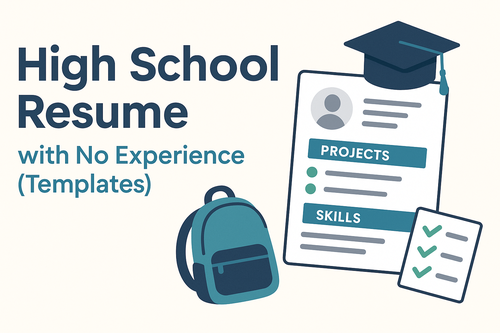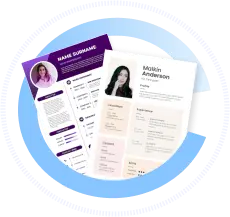Education on a Resume: What to Include (by Experience Level)
The education section on a resume showcases your academic background and credentials. It helps recruiters and Applicant Tracking Systems (ATS) quickly understand your qualifications. Knowing what to include — tailored to your experience level — is key to making this section effective in 2025 job markets.
| What to Do (Short Checklist) |
|---|
| Include degree(s) earned, institution name, and dates |
| Add honors, certifications, or relevant coursework |
| Tailor content for your career stage (entry vs senior) |
| Keep formatting clean and ATS-friendly |
| Avoid unnecessary details like high school for experienced candidates |
Who This Guide Is For
This guide supports students, recent graduates, mid-career professionals, and career changers. Whether you’re crafting your first resume or updating your education section, these tips and examples help build a strong academic profile for recruiters and ATS.
Education on a Resume — Definition & Purpose
The education section lists your formal schooling and certifications. It provides context for your skills and career goals and can be critical for fields requiring specific degrees or licenses.
Best-Practice Rules (Do / Don’t)
| Do | Don’t |
|---|---|
| Include degree name, school, location, and dates | List high school if you have a college degree |
| Mention relevant coursework, honors, or GPA if recent graduate | Add irrelevant or outdated education |
| Use consistent formatting with clear headings | Use complex layouts that confuse ATS |
| Tailor education details to the job requirements | Overcrowd this section with excessive info |
| Add certifications/licenses related to the role | Include non-professional or unrelated training |
Education Section Examples by Experience Level
Entry-Level / Recent Graduate
Bachelor of Science in Computer Science
University of Michigan, Ann Arbor, MI | Graduated May 2024
- Dean’s List (2022-2024), Relevant coursework: Data Structures, Machine Learning
Mid-Level Professional
Master of Business Administration (MBA)
Harvard Business School, Boston, MA | Completed 2018
Bachelor of Arts in Economics
University of California, Berkeley, CA | Graduated 2012
Career Changer
Certificate in Digital Marketing
Google Digital Garage | Completed 2023
Bachelor of Science in Biology
State University | Graduated 2010
How to Customize Education to a Job Description
- Highlight degrees or certifications relevant to the job role.
- Include coursework, projects, or honors matching the employer’s needs.
- Remove outdated education unrelated to your career goals.
- Mention ongoing education if pertinent to the job.
Formatting Tips (ATS + Readability)
- Use a simple, consistent layout with bolded degree titles and clear dates.
- Include city and state of institutions.
- Avoid tables or columns in the education section to ensure ATS compatibility.
- Place this section prominently if education is a key qualification (e.g., recent grads).
- For experienced professionals, place education after work experience.
Checklist & Templates
| Education Section Checklist |
|---|
| Are degree(s) and institution(s) clearly listed? |
| Are dates and locations included? |
| Is irrelevant or outdated education excluded? |
| Are relevant coursework and honors added as needed? |
| Is formatting ATS-friendly and consistent with resume? |
Fill-in-the-Blank Template:
“[Degree] in [Field of Study] | [School Name], [City, State] | Graduated [Month Year]”
Optional: “Relevant coursework: [Course 1], [Course 2]. Honors: [Honor]”
FAQ
Q: Should I include high school in my education section?
A: Only if you don’t have a college degree or it’s specifically requested.
Q: Do I need to list GPA?
A: List GPA if it’s above 3.5 and you’re early in your career; omit if experienced or if lower.
Q: How do I list ongoing education?
A: Use “Expected graduation [Year]” or “In progress” for current studies.
Q: Should I include certifications here or in a separate section?
A: Certifications highly relevant to the job can be included here or in a dedicated certifications section.


